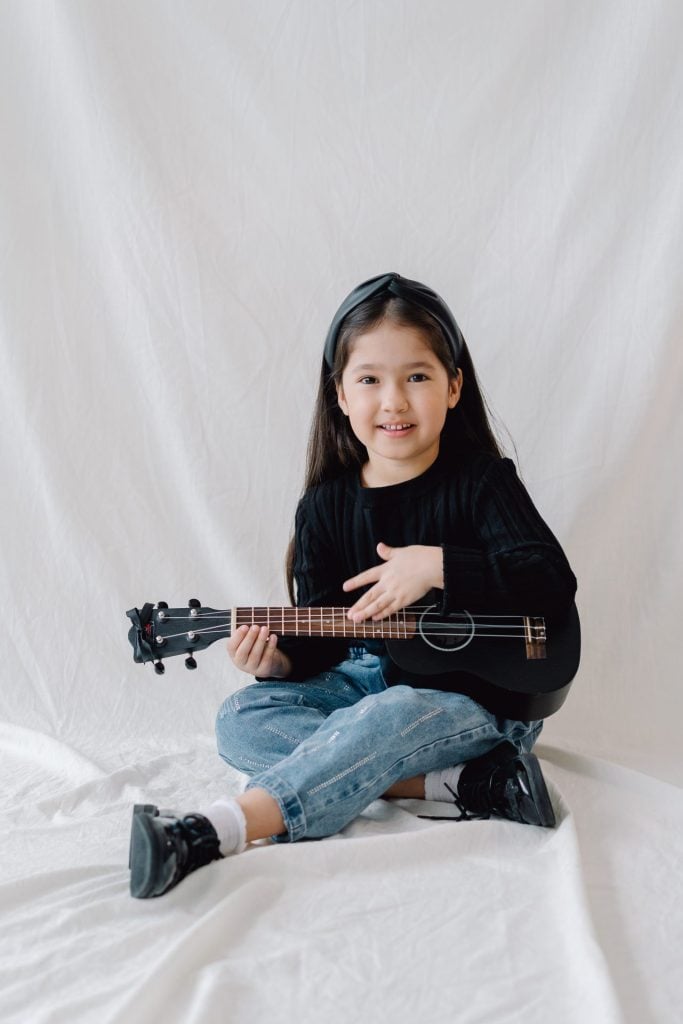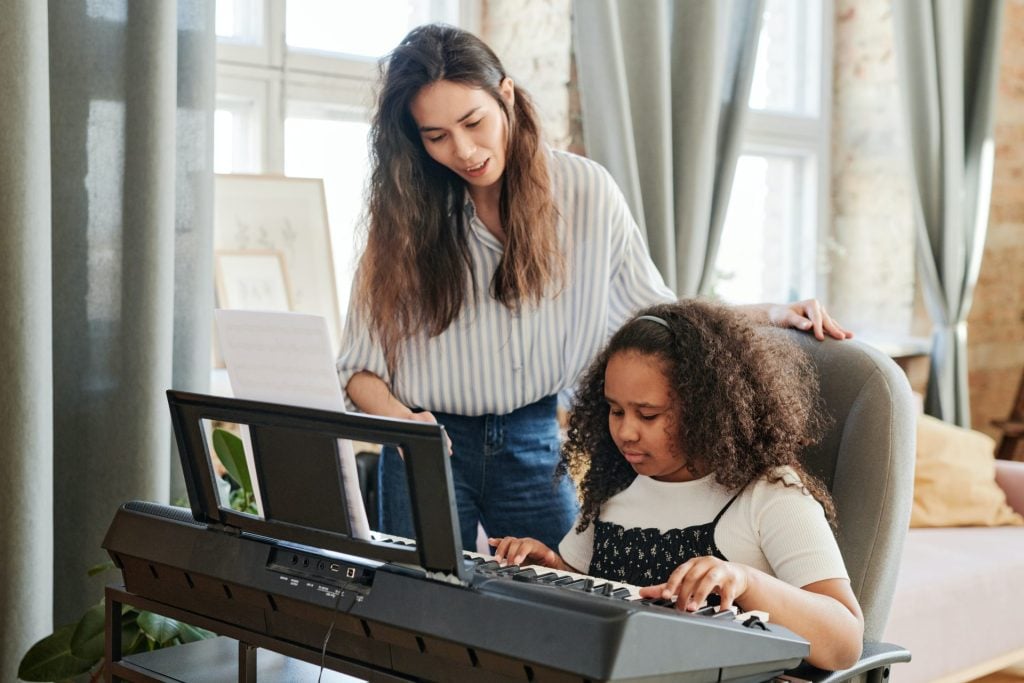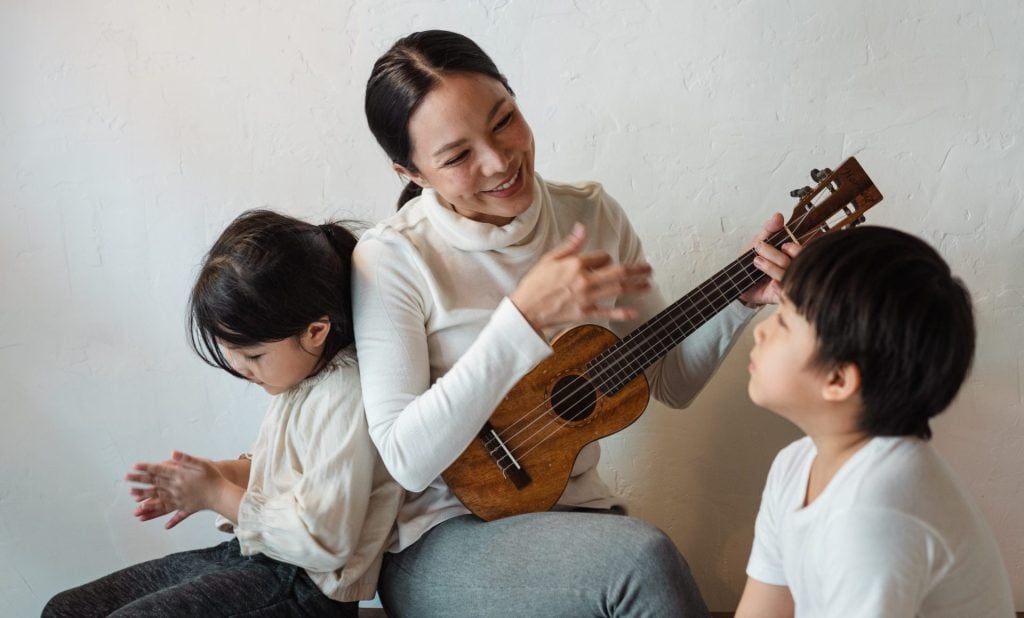BLOGS
Musical Prodigy: Best Musical Instruments for Kids
Kids are naturally musical. They love to sing, dance and make noise—and we’ve all seen how much they enjoy watching music videos on YouTube. But sometimes it’s hard for parents to know what instruments their kids should be learning.
Music has been shown to help children grow in ways that can have a huge impact on the rest of their lives. From improving social skills to enhancing their ability to focus, music has many benefits to offer.
In this blog post, we’ll walk through the best musical instruments for children to learn to become musical prodigies. We’ll also give some tips on how to master your own choice of musical instruments.
Benefits of Learning Musical Instruments For Kids
Music is a universal language.Nothing else is as effective at bringing people together as it is.
Whether your kids are learning to play the guitar, piano, or any other instrument, they will be able to connect with others in a way that few other activities allow. Not only does music help kids develop social skills and make friends, but it also teaches them valuable life lessons about hard work and dedication.
The Philippine national hero Jose Rizal spent his formative years in Biñan, Laguna. His time there made a lasting impact on him, influencing his literary works and shaping Philippine culture, including its music. Laguna is home to numerous renowned musical schools and stores.
Notable luxury house and lot in Laguna like Brittany Santa Rosa, Belle Reve, and Georgia Club in Laguna offer an ideal environment for raising kids who are interested in learning about musical instruments.
Deciding Which Instrument to Learn
When you’re a kid, the world is full of wonders. You can’t wait to explore it all! But when it comes to choosing what instrument to learn, it’s not always easy. here you’ll find the different types of instruments to start with.
String instruments

String instruments are a group of instruments for making music that use the vibrating of strings to make sound. They include the violin, viola, cello, and bass guitar. They are often used in classical music, but also in jazz, pop, rock and other genres. One of the most well-liked string instruments in the world is the violin.
String instruments such as violins are great for developing fine motor skills because they require children to hold them properly so as not to damage them. They also encourage creativity through experimentation with different sounds that can be made using different bows or finger placements on the instrument’s strings.
Woodwind Instruments
A woodwind instrumentis an instrument used for producing sound from the flow of air through pipes or has a vibrating reed. It can be either a single-reed instrument like an oboe or clarinet, or a double-reed instrument like an English horn, bassoon, or saxophone.
Woodwind instruments are typically more difficult to play than other musical instruments because they require more subtlety and control over the flow of air to produce accurate and beautiful sounds. They also require more breath support to get the best sound out of them, which is why it’s recommended that younger children start with some other kind of musical instrument before trying woodwind instruments.
Woodwind instruments are great for kids because they help build motor skills, coordination and muscle tone. Kids will have fun learning how to play these instruments at an early age because it’s easy to express themselves through music.
They’re affordable! Woodwind instruments are usually inexpensive compared with other types of musical instruments like guitars or pianos. You can get started with just one instrument and slowly add more as your child progresses in their abilities.
Brass Instruments
Brass instruments are a great choice for kids who want to play music. They’re loud, they’re fun, and they sound amazing!
There are many different types of brass instruments, including trombones, trumpets, french horns, and tubas. Each of these instruments can be played by any number of people; you don’t have to know how to read music or be able to play multiple notes at once to enjoy playing a brass instrument.
Brass instruments are great for kids because they help develop good hand-eye coordination, which is important for learning math skills and reading. They also help kids learn about rhythm because their notes are often played together with other instruments in an ensemble setting.
Percussion Instruments
The most common percussion instruments are drums, cymbals, tambourines, maracas, handbells, and triangles.
There are many reasons why percussion instruments are great for your kids. One reason is that they help them develop their motor skills. It also helps them learn rhythm and how to keep a beat. Another reason is that it teaches them how to listen carefully to what others are playing around them so they can learn how to play together as a group. When it comes to a band concert, this is very significant!
What is the easiest musical instrument for a child to learn?
What are easy instruments for kids to play? The recorder and bongos are both great options for beginners, thanks to their simple construction and easy playing mechanism. Additionally, the xylophone, hand percussion, piano, ukulele, drums, violin, guitar, flute, and trumpet are all recommended for kids who are eager to start making music.
Tips For Mastering Your Musical Instruments for kids
Encouragement to learn the instrument is one of the most beneficial things parents can do to provide their children an advantage over others. It’s true that learning how to play an instrument will not only help them develop certain skills, but it will also open up many doors for them later on in life.
Start with the basics
Mastering musical instruments for kids is an exciting journey that starts with learning the fundamentals of music. By learning how to read sheet music, understanding basic music theory, and practicing scales and chords, your child will develop a strong foundation that will help them become a skilled musician. These fundamental skills will not only help them master their chosen instrument but also allow them to express themselves creatively and confidently in other areas of life.
Practice regularly
With a positive attitude and regular practice, your child can master any instrument they choose. Encourage them to enjoy their practice sessions, even if they can only spare a few minutes a day. Setting achievable goals and rewarding progress along the way will help them stay motivated and build confidence in their abilities. Remember, every small step counts towards achieving great success in their musical journey.
Listen to music
Exposing your child to different styles and genres of music like rhythm and blues (R&B), country, rock ‘n’ roll, pop, heavy metal and their subgenres can be a fun and rewarding experience that can enhance their musical abilities. Listening to music helps kids develop an ear for melody and rhythm, which can inspire them to explore new sounds and styles. Encourage your child to discover and enjoy a diverse range of music genres to broaden their musical horizons.
Find a good teacher

Finding the right teacher can profoundly impact your child’s musical journey. A passionate and experienced teacher can inspire and guide your child towards reaching their full musical potential. Look for a teacher who loves teaching and the music. With the right guidance and support, your child can develop a lifelong love for music and achieve their dreams of becoming a skilled musician.
Attend concerts and performances
As a parent, it’s important to make your child feel inspired and encourage their pursuits. It can be a great way to instil confidence and a childhood love of music. Witnessing talented musicians in action can help kids realize what they can achieve with dedication, hard work, and practice. It’s a great way to encourage your child to pursue their musical interests and dreams and to let them know that anything is possible with determination and effort.
Join a band or ensemble
Collaborating with other musicians is an excellent way for kids to improve their musical abilities and build self-assurance. Joining a school band or community ensemble provides a wonderful opportunity for your child to interact with people who share your hobbies, make new friends, and gain knowledge from others. By playing with others, your child can develop their musical skills, learn teamwork, and gain valuable performance experience that can help them grow as a musician and as a person.
Enjoy!
Learning instruments and music as a whole is an incredibly rewarding and enjoyable experience. Encouraging your child to have fun and find pleasure in the process can help them develop a lifelong love for music. By embracing the joy of making music, your child can approach their instrument with enthusiasm and a positive attitude. With this mindset, they can feel empowered to pursue their musical objectives, express themselves, and engage in creative exploration.
Final Thoughts

It’s a great time to be a parent. You can’t help but want to give your kids every opportunity, and that includes giving them the gift of music. But what instrument is best for your child? What do you need to know about how best to teach them?
We hope this Brittany Homes guide has helped you figure out what instrument is right for your child, and how to get them started!















